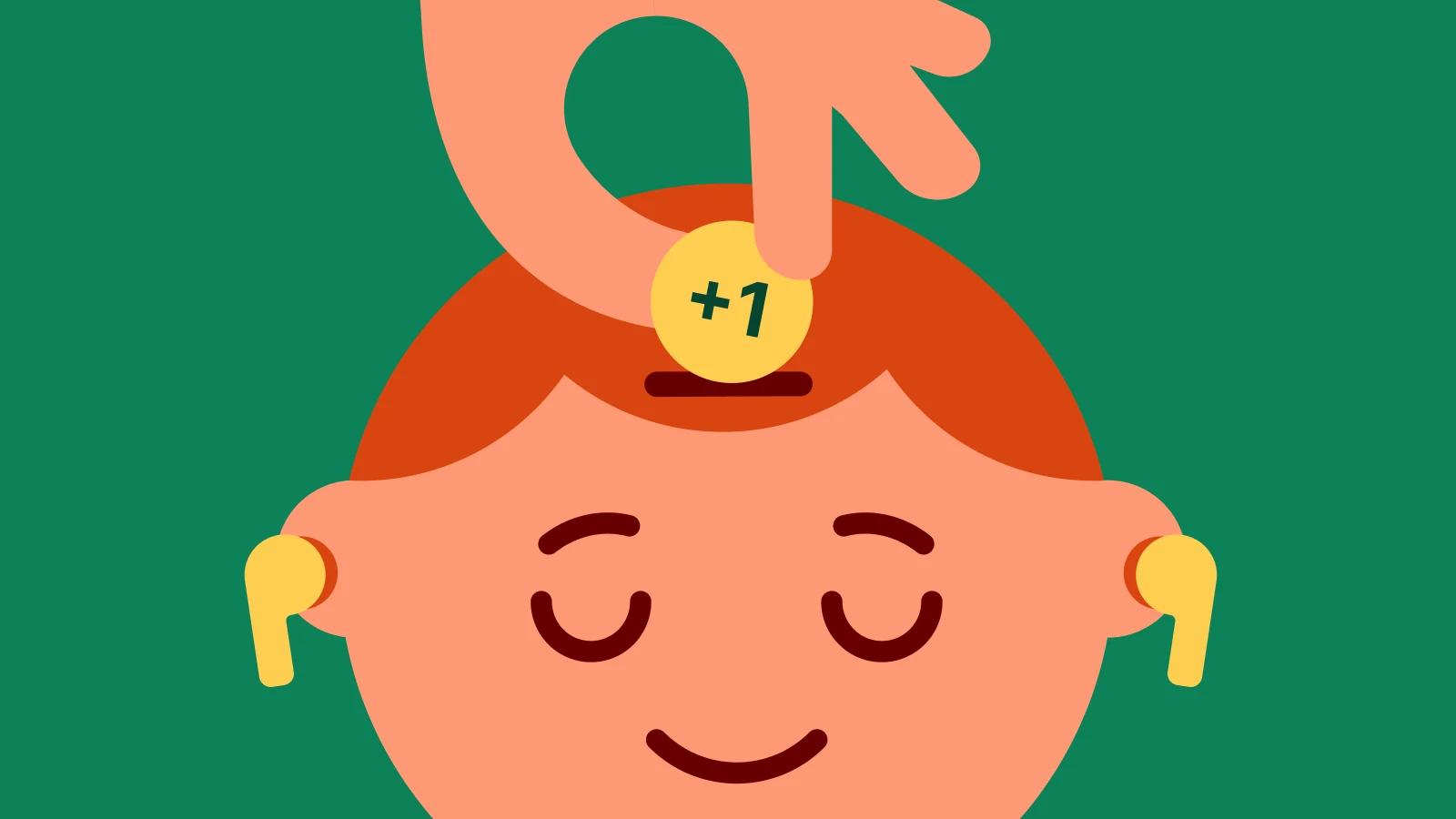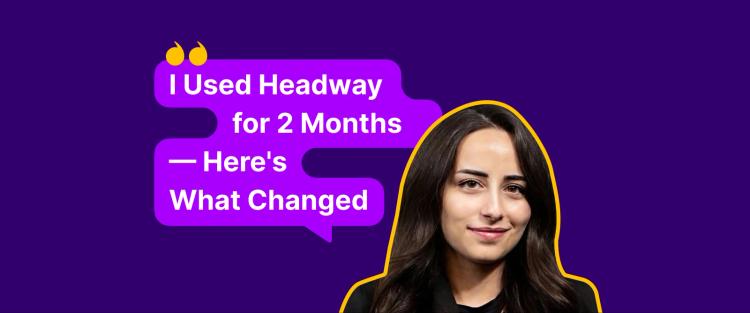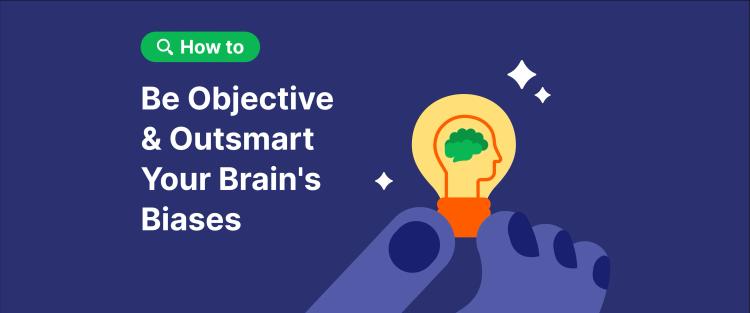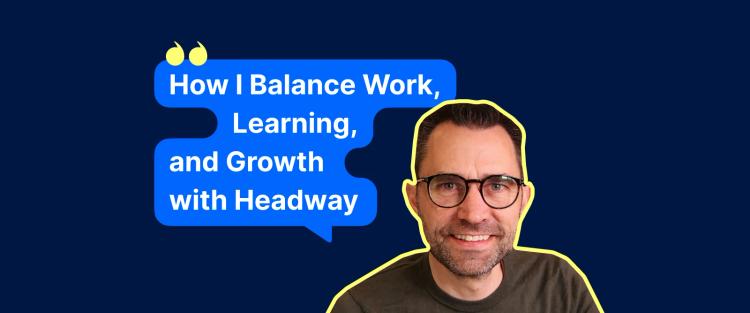Reading vs. listening to books is a hotly debated topic. Some say audiobooks are just as effective, while others argue that nothing beats reading a physical book or an e-book on an e-reader for that matter.
Quick answer: Both reading books and listening to audiobooks can boost memory, comprehension, and brain function. While physical books offer deep focus, their audio versions are better for multitasking and eye comfort.
Whether you're reading or listening, both formats help you absorb valuable information and support lifelong learning.
If you're short on time, we recommend an app to learn key ideas fast — like Headway's 15-minute summaries that combine the best of both formats and provide study hacks using short audio lessons for more effective learning.
Over the years, audiobooks have grown in popularity thanks to their convenience. But is listening really better than reading — or even comparable? And in the debate of summaries vs audiobooks, which is better for learning and retention? Let's break down the science, benefits, and best use cases for each format.
Here's a quick comparison of audiobooks vs. physical books to help you decide which format suits your needs best:
| Feature | Audiobooks | Physical books |
|---|---|---|
Hands-free | Ideal for multitasking and listening on the go. | Requires full attention and use of hands. |
Comprehension | Comparable to reading, studies show similar retention levels. | Strong focus and deep comprehension, especially for analytical reading. |
Eye strain | Prevents eye fatigue and screen-related discomfort. | Can cause eye strain over long sessions or in poor lighting. |
Emotional engagement | Enhanced by tone, emotion, music, and voice acting. | Engagement depends on imagination and reader’s internal voice. |
Portability | Easy to stream or download on mobile devices; perfect for travel. | Also portable, but bulkier and requires light to read. |
Learning support | Great for auditory learners and language practice (e.g., pronunciation). | Great for visual learners, highlighting, and note-taking. |
Productivity boost | Can be consumed while cooking, cleaning, commuting, etc. | Not compatible with most multitasking scenarios. |
Key points:
Audiobooks vs. reading: Both formats offer similar comprehension and cognitive benefits.
Listening to audiobooks: Great for multitasking, reducing eye strain, and staying productive.
Reading physical books: Ideal for deep focus and visual learners.
Audiobook benefits: Improve language skills, memory, and emotional engagement.
Headway app: Get quick, 15-minute audiobook summaries for self-growth on the go.
Do audiobooks count as reading?
Yes, listening to audiobooks is considered a form of reading by many experts. While the brain processes spoken and written language differently, both formats allow you to absorb information, improve comprehension, and retain knowledge.
Of course, it seems that reading a paperback novel and listening to an audiobook are two completely separate reading experiences. However, despite their significant physical differences, audiobooks and regular books share more similarities than you may think. Although listening to an audiobook doesn’t require you to sit down and peruse pages with your eyes, both methods allow you to fulfill the common purpose of acquiring information from a book.
The main difference between the two comes from the way the messages are decoded in your mind. Spoken language and written language are processed differently by the brain, meaning that you can receive the same information from two different sources, but they’ll be processed through different parts of the brain. To illustrate, listening activates the hearing center of the brain, while reading the written word is processed by the visual cortex.
This phenomenon also depends on the type of information being processed. For instance, a fiction novel being read for pleasure will be processed differently than a non-fiction book you are studying for academic or professional purposes. This is because you read fiction novels for entertainment, which can easily be forgotten afterward. Non-fiction is read for the purpose of retaining information for later use. In either case, whether you are reading a book or listening to one, the brain will process both fictional and non-fictional material and retain information, respectively.
Audiobooks and physical books may have their differences, but they share a common denominator: absorbing information from a book. As such, audiobooks can technically count as reading, as both outcomes are relatively the same.

How can audiobooks benefit your health?
Audiobooks are more than just something to listen to — they’re a way for people to continue learning while on the go and to maintain motivation to practice self-care and improvement. To give you some idea of how audiobooks can benefit your health, here are eight ways that audiobooks can improve both brain function and physical aspects of your daily life.

1. Audiobooks enhance language comprehension
When learning a new language, one of the primary focuses is usually placed on oral language – after all, languages are learned best by actively engaging in direct communication. Intrinsically, people learning second languages can listen to audiobooks in their desired lingo to improve comprehension. With constant exposure to new words and phrases, regular audiobook listeners may also experience more fluency and better pronunciation.
Many audiobook listeners may also find that hearing the credence and tone of a person’s voice helps them to attach more meaning to the words. In itself, this improves language comprehension by focusing on the context clues and notations to pick up on the vocabulary. Regardless of whether you are learning a new language or would simply like to refine your native vocabulary, audiobooks can serve as the perfect tool to do so.
2. Audiobooks create meaningful imagery
Whether you are a visual learner or not, most brains are able to create more vivid imagery through listening to speech rather than reading it. In fact, several studies show that listening to audiobooks produces more of a brain response than simply reading words off a page. This is because speech filled with emotion and various tones allows more room for your brain’s visual processes to kick in.
Although reading a good book in any format allows your brain to imagine scenarios and pictures in your head, listening to an audiobook will lead to a deeper visualization of the content through audio settings and descriptions. This is done through character voices, background music, and dramatic narrations. In the same way that a heart-wrenching movie is more likely to elicit an emotional response rather than reading the script, audiobooks bring a story to life by allowing listeners to empathize more with a story.

3. Audiobooks build critical listening skills
Listening skills are taught at a young age by encouraging children to listen attentively while someone else is reading a story. This is because listening to books can help you become accustomed to learning through verbal communication. The more books you listen to, the more you will be able to focus on the words being spoken and apply these skills to your daily conversations and beyond.
Critical listening skills are a foundational tool that helps you learn, get around on your own, and maintain healthy personal relationships. This is especially true for children whose brains are still being developed, and as such, using their acquired listening skills can help build vocabulary, literacy, and language acquisition. Audiobooks can, therefore, be a pathway for this tool by helping you develop active listening abilities by maintaining long-term attentiveness to a person’s speech.
4. Audio versions are easier on the eyes
After a long day spent on the job, reading tiny fonts on screens and maintaining sharp focus for hours on end, your eyes can easily take the brunt of everything. This constant pressure on your eyes can result in uncomfortable eye strain, causing headaches and painful migraines. Not to mention, the blue light emitted from smartphones and TV screens can disrupt sleep patterns and make symptoms worse.
For people who read regularly or who would like to minimize their amount of screen time, audiobooks can help reduce the chances of developing eye strain. To avoid this, consider trading your nightly paperback or digital read for an audiobook recording. This will help keep your eyes off a screen and encourage you to relax your eyes before bed.

5. Audiobooks improve reading ability
People who have trouble reading for various reasons, including people with dyslexia and visual impairments, may find it beneficial to make the switch to audiobooks. The reason is that reading a book often requires more mental resources than some people are capable of using. Audiobooks, on the other hand, eliminate the need for reading and allow you to retain information in a way that is much easier for your brain to handle.
Pairing an audiobook with a physical copy of the book and reading along with the recording can also be a great method for those who need a little extra help while reading. Using audiobooks with regular books consistently could even give you an extra push into the reading department by giving you the foundations of reading. After enough practice with paired audio, you may be able to try reading on your own and see if it works for you.
6. Audiobooks help with memory retention
It’s no secret that books can offer you a broad range of information, but reading a book doesn’t necessarily mean you will remember everything afterward. Although studies show that the average person’s retention of a physical book is no different than that of an audiobook, some people may find that they retain information better with audiobooks. This is because audiobooks stimulate memory and thinking skills to a higher degree by encouraging more imagination and visualization.
On another note, reading written text can make you more likely to experience reading regression – the act of glazing over words and returning back to previous sentences and paragraphs because you haven’t taken in any information. Since audiobooks are not as easy to reverse continuously, listening to an audiobook without reversing can essentially train your brain to retain more information quickly and efficiently.

7. Audiobooks result in faster reading speed
Improving your word-per-minute (WPM) speed can have several benefits, including being able to finish long pieces of text in a shorter time span. Although the average reader can breeze through about 250 to 300 words per minute, the average rate of speech is only 150-160 per minute. However, the average listening speed is faster than the speaking speed, which means that people can still comprehend spoken words at up to 300 WPM.
Since the average reading speed is the same as the listening speed, people with a lower-than-average reading speed can, therefore, use audiobooks to accelerate their reading. Additionally, the narration settings can be altered to read at speeds up to 2.0x. This means that you can potentially finish an entire audiobook in half the time it normally takes. Keep in mind that listening to higher narration speeds may make the words more difficult to resonate with emotionally, so this method is used best for texts being read for academic or professional purposes.
8. Listening to audiobooks increases productivity
The act of reading a book requires your full focus and concentration. However, audiobooks can be listened to at any time during the day, especially while running errands and completing tasks. As a result, listening to audiobooks can help increase productivity levels through the art of multitasking.
Consider listening to audiobooks that correlate to the task you are working on. For example, if you are cleaning the house, putting on an audiobook about home organization could offer you new ideas and motivate you to achieve superior results. Other types of books, such as self-help books about building confidence and creativity, may be best played during commutes to work or before an important presentation.

When is listening to a book better than reading one?
Contrary to popular belief, there are times when listening to an audiobook can be considered better than reading a physical copy. Here are some instances in which you may find that audiobooks are much more convenient than pulling out a book.
When you are busy
In today’s society, hustle culture is a real thing, and it can often deprive people who follow busy lifestyles of finding the time to sit down and enjoy some form of self-care. As a matter of fact, many people don’t have the resources to sit down and open a book to read for hours – in which case, audiobooks come to the rescue with a solution.
For busy parents, businessmen and women, or people with hectic schedules, audiobooks can offer you the opportunity to make time for what is most important in your life. If you find yourself struggling with setting aside time for self-improvement and mental development, consider playing an audiobook recording during times of busyness. This can either help calm you down and relieve stress, or it can simply allow you to accomplish more tasks at once.
When the audiobook is entertaining
Books are meant to be entertaining in their own right, especially fiction novels that tell interesting stories. Depending on the type of book you read, books are usually designed to keep a reader engaged with flashy imagery or striking opening lines. Nevertheless, some books can become dull or boring midway through and cause you to leave the book unfinished.
Think of an audiobook as an audio movie. Reading a book means that you are responsible for creating the visual and auditory show in your head, complete with character voices and narration style. However, if you aren’t equipped with an active imagination, reading books can simply be unsatisfying. In this case, audiobooks take care of most of the imaginative work by using music, voices, and other sound effects to maintain a high level of entertainment throughout the book.
When you want to wind down
After a long day of work, it’s easy to want nothing more than to mindlessly turn on the TV or scroll endlessly through your phone. Although it is certainly not a bad thing to let yourself wind down and lounge after work, staring at a screen for hours may not always be the best way for your brain to relax.
As a matter of fact, too much screen time could make you more alert and increase your chances of insomnia or poor sleeping patterns. However, reading a book when you are tired or in a low mood can lessen your ability to focus on the words being read. In this situation, listening to an audiobook can help you relax in a healthy way that calms you down while gently stimulating your mind.
When audiobooks come in summary format
Full-length audiobooks can sometimes run for up to 10 or more hours – and sometimes, people simply don’t have the patience to sit and listen for long periods of time. Luckily, there are apps available that condense the most popular books into bite-sized chunks of information for your listening pleasure. For instance, Headway is a learning app that focuses on providing its users with short audio summaries packed with key insights from books.
Rather than spending hours on a single audiobook, listening to summaries of books lets you gain the same information you would from listening to a book, but in less than half the time. Whether you need to finish reading a book for tomorrow’s essay or you’re looking to complete a reading challenge within a set timeframe, audio summaries can be both convenient and efficient.

Listen to audiobook summaries with Headway
Using the Headway app can help you manage a busy schedule while still focusing on self-development. It comes with features that allow you to track your performance goals, listen on the go, and read without limits.
With this app, you can read and listen to books in bite-sized summaries, helping you to retain the most important parts of a book in less than half the time. Plus, the book summaries in the app are narrated by professional voice actors, and you can even listen to the summaries at different speeds to further increase your productivity.
Looking for a way to improve your reading comprehension and retain information without sacrificing too much time? Download the Headway app to gain access to a variety of 15-minute audiobook summaries.
FAQs
Are audiobooks as good as reading?
The debate between audiobooks vs physical books comes from the belief that audiobooks are unable to provide readers with the same benefits as reading – stress relief, memory retention, and useful learning resources, to name a few. However, audiobooks can actually be just as beneficial to the brain and body as reading. Although physical books and audiobooks may activate different parts of the brain, studies show that the comprehension rate of physical books and audiobooks are equal – meaning that audiobooks are up high on the scale next to regular books.
What are the disadvantages of audiobooks?
While audiobooks on platforms like Audible or Amazon are convenient, they do have drawbacks. It's harder to skim or highlight key points compared to a traditional book on Kindle. Some readers retain information better through visual decoding, especially when preparing for a book club or academic discussion. Unlike a podcast, where content is often conversational, audiobooks typically require longer attention spans. For analytical texts, the lack of visual structure can present significant differences in comprehension.
Do humans learn better by reading or listening?
It depends on personal preference and learning style. Visual learners may benefit more from reading English texts on a Kindle or in a traditional book format, while auditory learners may learn better through listening on Audible or to educational podcasts. Studies by experts like Daniel Willingham of the University of Virginia suggest that both formats can lead to equal comprehension when attention is sustained. However, inflections in speech can aid emotional understanding and improve memory retention.
Are audiobooks better for ADHD?
For many individuals with ADHD, audiobooks—especially when paired with apps like Audible—help improve focus by engaging both imagination and attention span. Listening to narrated English texts allows for movement during learning, which can be beneficial for neurodivergent minds. Compared to social media scrolling or passive consumption, listening to a book or educational podcast offers structured information with fewer distractions. Audiobooks also provide more consistency than high-stimulation formats like video.
What are the disadvantages of subvocalization?
Subvocalization, or silently pronouncing words while reading, can slow your reading speed and hinder efficient decoding of complex English texts. Though helpful for retention at times—especially with dense content—it often interferes with faster reading goals like those required in academic settings or when reviewing multiple articles from the New York Times. According to researchers like Rogowsky, limiting subvocalization may help increase reading fluency, especially when preparing for time-sensitive tasks.
Do audiobooks make you a better listener?
Yes, audiobooks—particularly well-narrated ones on Audible—can improve your ability to detect emotional tone and inflections in speech, which are crucial to active listening. Like a narrative podcast, an audiobook encourages you to concentrate on details, tone, and pacing. This skill is transferable to real-life communication, making it especially valuable in personal and professional settings. Some American educators also incorporate audiobooks to support listening comprehension in English language learners.
Who listens to audiobooks the most?
Data from Amazon and Audible suggests that the largest groups of audiobook listeners include American millennials, busy professionals, and students. Many prefer audiobooks over traditional books for multitasking—during workouts, cooking, or commuting. Blind people and individuals with dyslexia also rely on audiobooks as a primary mode of learning and entertainment. Educational podcasts and narrated summaries are also popular among readers who follow the New York Times, participate in book clubs, or want to reduce time spent on social media.













